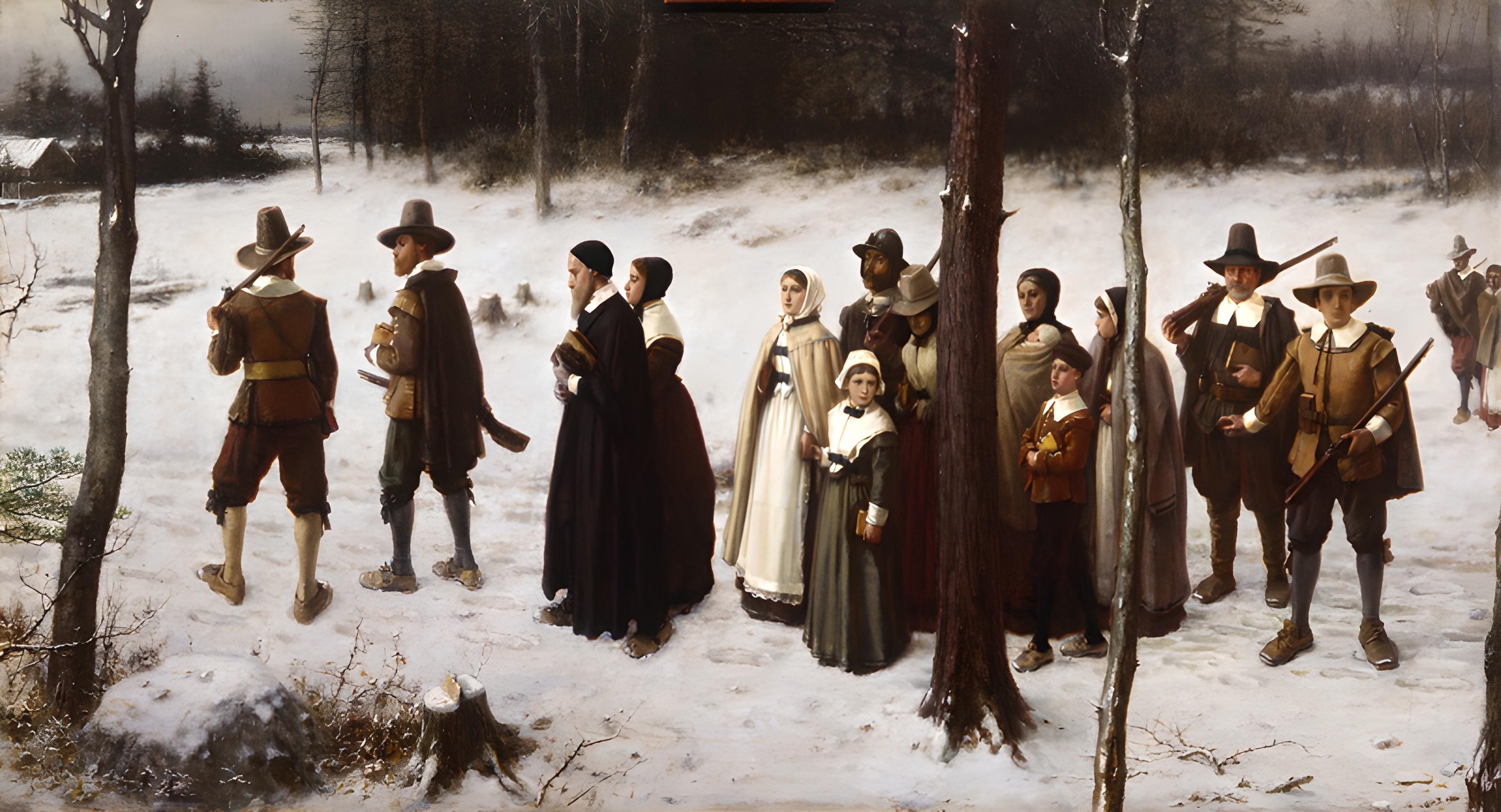
Protestantism in the United States
Protestantism is the largest grouping of Christians in the United States, with its combined denominations collectively comprising about 43% of the country's population (or 141 million people) in 2019.[1] Other estimates suggest that 48.5% of the U.S. population (or 157 million people) is Protestant.[2] Simultaneously, this corresponds to around 20% of the world's total Protestant population. The U.S. contains the largest Protestant population of any country in the world. Baptists comprise about one-third of American Protestants. The Southern Baptist Convention is the largest single Protestant denomination in the U.S., comprising one-tenth of American Protestants. Twelve of the original Thirteen Colonies were Protestant, with only Maryland having a sizable Catholic population due to Lord Baltimore's religious tolerance.[3]
The country's history is often traced back to the Pilgrim Fathers whose Brownist beliefs motivated their move from England to the New World. These English Dissenters, who also happened to be Puritans—and therefore—Calvinists, were first to settle in what was to become the Plymouth Colony. America's Calvinist heritage is often underlined by various experts, researchers and authors, prompting some to declare that the United States was "founded on Calvinism", while also underlining its exceptional foundation as a Protestant majority nation.[4][5] American Protestantism has been diverse from the very beginning with large numbers of early immigrants being Anglican, various Reformed, Lutheran, and Anabaptist. In the next centuries, it diversified even more with the Great Awakenings throughout the country.
Protestants are divided into many different denominations, which are generally classified as either "mainline" or "evangelical", although some may not fit easily into either category. Some historically African-American denominations are also classified as Black churches. Protestantism had undergone an unprecedented development on American soil, diversifying into multiple branches, denominations, several interdenominational and related movements, as well as many other developments. All have since expanded on a worldwide scale mainly through missionary work.
Other themes[edit]
Protestantism and American education[edit]
According of Scientific Elite: Nobel Laureates in the United States by Harriet Zuckerman, a review of American Nobel prizes winners awarded between 1901 and 1972, 72% of American Nobel Prize laureates have identified from Protestant background.[53] Overall, 84.2% of all the Nobel Prizes awarded to Americans in Chemistry,[53] 60% in Medicine,[53] and 58.6% in Physics[53] between 1901 and 1972 were won by Protestants.
Some of the first colleges and universities in America, including Harvard,[54] Yale,[55] Princeton,[56] Columbia,[57] Brown, Dartmouth, Rutgers,[58] Williams, Bowdoin, Middlebury, and Amherst, all were founded by Protestants, as were later Carleton, Duke,[59] Oberlin, Beloit, Pomona, Rollins and Colorado College.